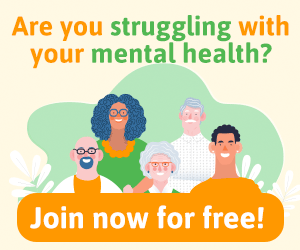We all get down sometimes, but if you're stuck in a rut and thinking 'why do I hate my life', it's time to take action. Psychologist Stanislava Puač Jovanović shares 10 practical ideas to help put your life in perspective and turn things around so you can start loving living again.
'I hate my life!' Does this statement (or, rather, exclamation bellowed in agony) resonate with you now or in the past? Then you are not alone.
Life can be joyous, exhilarating and breathtaking. However, it is also unpredictable. Challenges arise, we make poor decisions, difficulties get hurled our way. A part of life is to dislike some of it. You might have married the wrong person, and now you loathe your time together. Maybe you were hit by an economic crisis and cannot make ends meet. You may hate your job or have a terrible work life balance. Sometimes it seems only logical to hate your life.
I lived in that state for many years. And I do not mean a teenage 'I hate my life!' exclamation when you embarrass yourself in front of the entire class. I'm talking about the darkest loathing of every waking moment. I know how your soul grows black when you feel inescapably hopeless and helpless.
Why did I share that with you? Because I want you to know that what you will read is not empty talk. I have travelled the path, and I did so very recently. You, too, can swim back to the surface. How? Read on for some ideas on how to fight the antipathy you nurture towards your own life — and fall back in love with it.
What to do when you hate your life: reclaim it
Hating your life is not a pretty state to be in. Wrong choices and regret tend to put you off course. I remember when I noticed my life suddenly starting to lose all its colours. I felt lost. I was paralysed by the revulsion when I catalogued all my failures that made my life unenjoyable, to say the least.
So, if you've been hating your existence or wondering 'why is my life so boring', start reclaiming it! It may be a long road to travel. Still, you are bound to become sager afterwards — not to mention happier. If you are wondering what to do when you hate your life, here are the 10 steps you owe it to yourself to take:
1. Take time to reflect
The first essential step you need to take is to understand why you're unhappy with your life. It may be obvious, like having a job that drains your energy and has no higher purpose whatsoever. In other instances, the source of your hatred may not be so obvious. It could be a group of aspects of your life, like an unsupportive family, lack of time for hobbies, overly expensive apartment, wrong profession, and so on.

What to do when you hate your life? Reclaim it!
Take some time to reflect on the topic and write down your thoughts. What it is exactly that you want out of your life? It would be best if you determined exactly where the loathing comes from. Because unless you know why you hate your life, it will be challenging to come up with how to find yourself again and start feeling more positive.
2. Determine what's in your power to change
When you're done with the soul-searching from the first step, you should analyse the situation. What is it that you can control and change? And what is out of your hands?
For example, if you're in an abusive relationship, there's little point in trying to make the abuser change. However, you can transform your perspective on things. You can gradually start refusing to think about your life and yourself as they dictate. Their insults do not have to be the building blocks of your identity.
MORE LIKE THIS:
- Discover the 10 Keys to Happier Living
- Feeling Blue Or Clinically Depressed? 4 Things You Should Look Out For
- How to Stop Feeling Overwhelmed: 8 Strategies
The Serenity Prayer, regardless of your religion, speaks about a pearl of universal and timeless wisdom:
Grant to us the serenity of mind to accept that which cannot be changed; courage to change that which can be changed, and wisdom to know the one from the other
3. Remove unhelpful automatic thoughts
Whatever your situation may be, chances are, the previous step led you to realise your thoughts are always in your hands. Indeed, it's the one thing we can always control, although this is a challenge in itself.
We all have many automatic thoughts. Unfortunately, they are often unhelpful. Such maladaptive thinking patterns cause numerous disturbances and difficulties, as a cross-cultural study found. A straightforward example: if you keep thinking “why do I hate my life” then you are gearing your mind towards negativity.
“If you're in a situation that makes you unhappy with your life, take time to work on forgiveness. If we replace our unforgiving emotions with empathy and compassion, our bodies and minds heal.”
Work on removing such maladaptive thoughts. Challenge them, search for counterarguments. Come up with alternative statements, and start thinking them instead of the negative ones. For example, replace “I hate my life” with “It is in my power to create the life I want”. Remember: you are not your thoughts.
Furthermore, a systematic review of nearly 70 scientific papers confirmed the power of self-talk. Positive self-talk can improve our performance, help with depression or anxiety symptoms, and increase our confidence.
4. Forgive and self-forgive
If you're in a situation that makes you unhappy with your life, take time to work on forgiveness. An extensive review of studies on forgiveness found that if we find it in ourselves to replace the unforgiving emotions with empathy and compassion, our bodies and minds heal.
And what about self-forgiveness? When you forgive yourself, you open the doors to growing as a person, a study revealed. According to Stanford University’s summary of recent findings in the field, self-forgiveness leads to:
- Wisdom
- Increased ability to focus, success, and higher productivity
- Better emotional health
- More quality relationships
- A sense of happiness and gratitude
So, whether you’re feeling guilty for hurting another person, being in the wrong place at the wrong time, or for failing to stick to healthy habits, let go of self-hate. Letting go of loathing will help you release your energy for a fresh start and a new, happier life. It's time to be your own best friend and stop self-flagellation.
5. Practise gratitude
When you are dissatisfied with your life, you probably have a bias towards seeing the negatives. It may be a strong mental habit, making you blind to the opportunities that are still there for you.
However, if you're fed up with the hatred of your life, start practising gratitude. Focus on all of the good things in your life. Indeed, even in the darkest moments, there is something to be grateful for.

Unhappy with life? Practise gratitude and enjoy the simple things
It may be your memories and the wonderful moments you've had in the past. It could be your inner strength and perseverance. Look at nature and cherish its beauty. Take a moment to watch the morning and be thankful for seeing it. Savour. Then move gradually towards recognising other positives in your life — friends, family, your home, your job... find the good in everything you can.
In that way, you train your mind to stop focusing on the loathsome aspects of your life. Scientific research has confirmed the benefits of gratitude on life satisfaction and happiness. Suddenly, you will start seeing the opportunities to turn things around.
6. Avoid comparisons
Comparing yourself to others can make you vulnerable to anxiety, low self-esteem and depression. We're naturally inclined to compare ourselves to others. Social media makes it very difficult not to. However, what people showcase online is carefully corrected and selected to display only the best features.
Trying to keep up with those fake standards is bound to make you hate your life. Even when you know images and posts are edited, they can still make you feel inadequate.
“If you're fed up with the hatred of your life, start practising gratitude. Even in the darkest moments, there is something to be grateful for.”
So, do not compare yourself. Direct your energy towards your the needs and wishes of your authentic self instead. Ask yourself — what would I want if I was not trying to keep up? What would I do if I did not care about praise, money, accomplishments, recognition?
7. Explore your passions
Try to remember the last time you felt on top of the world. You were likely living in line with your principles and passions at that time.
Now that you are not, you probably feel lost and 'I hate my life' has become your mantra. Therefore, venture on to explore and (re)discover your interests. Ask yourself: “What is it that I used to love doing and believed in?” “What would I want to do if I did not have to care about money or anything else?”
MORE LIKE THIS:
- When Life Gives You Lemons, Try Lemonading
- How to Stop Beating Yourself Up: 7 Techniques That Work
-
Happiness Is A Choice: 8 Ways To Choose It Today
Search for the activities that give you something called flow state, a phrase coined by psychologist Mihaly Csikszentmihalyi. Flow is a state in which you get lost in an activity. You stop noticing time passing and you're 100% absorbed in what you're doing. Csikszentmihalyi’s research concluded that the more ‘flow’ you have in your life, the more resilience, well-being, and fulfilment you will enjoy. So, when you are feeling unsatisfied with life, remember what you used to love doing, or try new hobbies: maybe you will find something that reignites your flame.
8. Get support (and input) from your friends and family
Hating your life puts you in a dark and, often, lonely place. You may be living under circumstances that isolate you. The heaviness of the feeling might be too much to hide or to share with others.
Yet, being alone is a stressor on its own. It can make it too easy to ruminate about what you loathe about your life. Try to “prescribe” yourself socialising with people. Enjoy a casual coffee with friends or a heart-to-heart conversation about what worries you. Studies revealed that social support could help you step out of your head and gain a fresh perspective on things.
Embrace family and friends when you're feeling unhappy with life
9. Look after yourself
When you're in a state of hating your life, it often becomes difficult to take good care of yourself. However, the mind-body connection goes two ways. When you're sleep-deprived, sick, and physically weak, you become psychologically vulnerable, too.
“Come up with alternative statements and start thinking them instead of negative ones. Replace 'I hate my life' with, 'It's in my power to create the life I want.”
So, start looking after yourself. Sleep, exercise, get enough fresh air, eat healthy food. Scientific research has proven that physical activity helps lower the levels of stress hormones in your body. It also increases your ability to focus and use your intellectual skills better. As a result, you will gain clarity and better control over your emotions.
Same goes for other acts of self-care. Give yourself plenty of self-love, even when you do not feel like it. Your future self will thank you.
10. Make a plan of action
After all of the steps above, you're probably ready to make an action plan. Identify what makes you unhappy. Commit to making small steps to improve things. Each day, ask yourself: “What is it that I can do to move closer to my goal today?”
The 'why do I hate my life' monster might raise its ugly head a few more times. However, stop sabotaging yourself. Do not allow it to stay in your head for too long. Remember — our time on this planet is limited. You do not want to spend whatever time you have left hating your life — you want to change it while you can.
Takeaway: what to do when you hate your life
Yes, you only get to live once. So, does it make any sense to hate your life? Is it not wiser to try and change it around? It may take some time, but if you use the rock bottom you're at right now to push yourself back to the surface, you will be able to say: “I survived”. You will start to love living again and enjoy every moment of it. •
Images: shutterstock/Srdjan Randjelovic, shutterstock/Serhii Yurkiv, shutterstock/AlessandroBiascioli
If you continue to feel low about life, this could be a symptom of clinical depression. If you experience any of the signs of this emotional disorder, make sure to reach out to your local mental health services. In the US, you can also contact the National Suicide Prevention Hotline for free and confidential support. Use Lifeline Chat or call 1-800-273-TALK (8255). In the UK, call 116 123 to talk to Samaritans, or email: [email protected] for a reply within 24 hours. You can also text “SHOUT” to 85258 to contact the Shout Crisis Text Line, or text “YM” if you're under 19.
happiness.com | The fine art of being: learn, practise, share
Are you a happiness.com member? Sign up for free to enjoy:
■ our happiness magazine with practical life tips
■ sharing and supporting in our happiness forum
Written by Stanislava Puač Jovanović
 Stanislava Puač Jovanović has a master’s degree in psychology and works as a freelance writer and researcher in this area. Her primary focus is on questions relating to mental health, stress-management, self-development and well-being.
Stanislava Puač Jovanović has a master’s degree in psychology and works as a freelance writer and researcher in this area. Her primary focus is on questions relating to mental health, stress-management, self-development and well-being.






Join the conversation
You are posting as a guest. If you have an account, sign in now to post with your account.